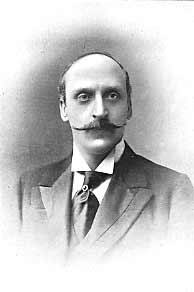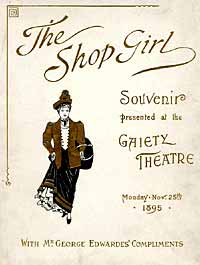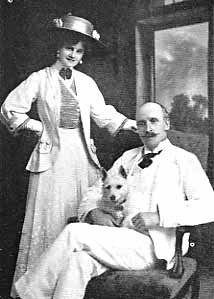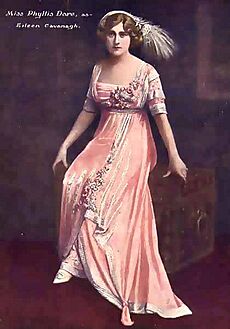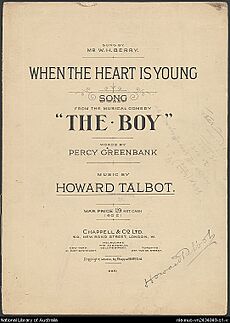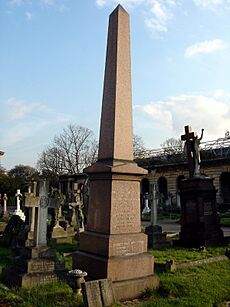Lionel Monckton facts for kids
Lionel Monckton (born December 18, 1861 – died February 15, 1924) was a talented English composer. He wrote music for many popular stage shows called musical theatre. In the early 1900s, he became Britain's most famous composer of Edwardian musical comedy. These were fun, light-hearted shows with songs and dances.
Contents
Life and Music Career
Early Years and Education
Lionel Monckton was born in London. He was the oldest son of Sir John Braddick Monckton. His father was the Town Clerk of London. His mother, Lady Monckton, loved acting.
Lionel went to Charterhouse School. Then he studied at Oriel College at Oxford University. He finished his studies in 1885. While at Oxford, he loved acting in college plays. He also wrote music for the university's drama clubs. He even helped start one of them!
After college, he first worked as a lawyer. But he also started writing songs part-time. He became a critic, writing about theatre and music. His first show was an operetta called Mummies and Marriage in 1888. An operetta is like a short opera with speaking parts.
In 1891, when he was 29, one of his songs was finally used. The song was "What will you have to Drink?". It was in a professional musical show called Cinder Ellen up too Late. After this, his songs started appearing in many other London shows.
Becoming a Musical Contributor
Monckton soon became a regular composer for the Gaiety Theatre in London. This theatre was famous for its fun musical comedies. These shows were very popular in the 1890s and early 1900s.
He wrote music for many hit shows. For example, he wrote half the music for Claude Du-Val in 1894. He also added popular songs to The Shop Girl that same year. Some of his famous songs from that show were "Beautiful Bountiful Bertie" and "Brown of Colorado".
He continued to add great tunes to other shows. These included The Circus Girl (1896) and A Runaway Girl (1898). Songs like "Soldiers in the Park" and "The Sly Cigarette" became very well-known.
After the "Girl" musicals, came the "Boy" musicals. Monckton again wrote hit songs for these. They included The Messenger Boy (1900) and The Toreador (1901). His songs were so catchy that people sang them for many years. Some were still popular even in the 1960s!
In 1902, Lionel Monckton married Gertie Millar. She was a very successful actress. He had helped her get discovered. Gertie starred in many of his shows, and he wrote some of his best songs for her.
Monckton also wrote songs for shows at Daly's Theatre. These shows were more romantic comedies. He often worked with another composer, Sidney Jones. They created hits like The Geisha (1896) and San Toy (1899).
His Most Popular Years
In 1902, Lionel Monckton got his first chance to write almost a whole show by himself. This was A Country Girl. Some of his key songs in this show were "Molly the Marchioness" and "Under the Deodar". This show was a big success!
Because A Country Girl was so popular, he wrote another musical called The Cingalee in 1904. His songs "The Island of Gay Ceylon" and "Pearl of Sweet Ceylon" were very successful. After this, French operettas became popular, so Monckton went back to writing songs for other composers' shows.
He continued to work with other composers at the Gaiety Theatre. These shows included The Spring Chicken (1905) and The Girls of Gottenberg (1907). His songs from these shows were some of the most played and sung at the time.
One of his last big successes at the Gaiety was Our Miss Gibbs in 1909. This show became a hit all over the world.
Then, Monckton had his greatest success with a show called The Arcadians in 1909. He worked with Howard Talbot on this one. Many people consider The Arcadians to be a classic musical from the Edwardian era. It was popular in America and other countries. Songs like "The Pipes of Pan" and "The Girl with the Brogue" were huge hits.
He also wrote The Quaker Girl in 1910, which was another hit. For this show, he wrote songs like "The Quaker Girl" and "Come to the Ball". He then wrote The Mousmé (1911) and The Dancing Mistress (1912).
Monckton's last very big hit was The Boy in 1917. He worked with Howard Talbot again on this one. It was a musical version of an old play. It was a great show for the comedian W. H. Berry. Popular songs from The Boy included "I Want to Go to Bye-Bye".
After World War I
After World War I, new kinds of music became popular. These included American dance rhythms and ragtime. Lionel Monckton found it hard to change his style to fit these new sounds.
He did contribute to some musical revues, which are shows with different acts. But he wasn't very excited about these new musical styles. He soon stopped composing new music.
Even though he stopped writing, Monckton's music stayed popular in Britain. It was loved until after World War II. Some of his most famous shows were still enjoyed even later in the 20th century.
Lionel Monckton passed away in his London home when he was 62 years old. He is buried in Brompton Cemetery.
Main Shows and How Long They Ran
Here are some of the main shows where Lionel Monckton was the most important composer. The numbers show how many times each show was performed:
- A Country Girl (1902) – 729 performances
- The Cingalee (1904) – 391 performances
- The Spring Chicken (1905) – 401 performances
- The Girls of Gottenberg (1907) – 303 performances
- Our Miss Gibbs (1909) – 636 performances
- The Arcadians (1909) – 809 performances
- The Quaker Girl (1910) – 536 performances
- The Boy (1917) – 801 performances
Many other shows that he just added songs to also had very long and successful runs.
Recordings of His Music
You can still listen to Lionel Monckton's music today!
- The Arcadians has been recorded. You can find parts of it on old records (LPs) and the full show on CDs.
- Songs from Our Miss Gibbs and The Quaker Girl have also been released on CD.
- In 2003, a CD called The Monckton Album came out. It features songs from The Arcadians, The Quaker Girl, and The Cingalee.
- In 2008, another CD was released called Lionel Monckton (1861–1924): Songs from the Shows. This CD has songs from many of his musicals. It includes music from A Country Girl, The Toreador, The Quaker Girl, and more.
 | Jessica Watkins |
 | Robert Henry Lawrence Jr. |
 | Mae Jemison |
 | Sian Proctor |
 | Guion Bluford |


